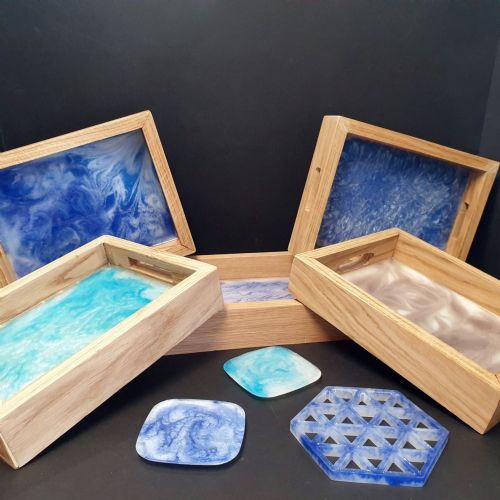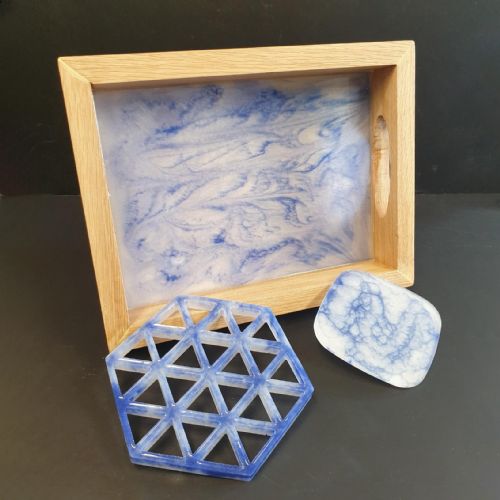Design Technology and Food & Nutrition
Design & Technology provides excellent opportunities for pupils to apply judgements of an aesthetic, economic, moral, social and technical nature in their designing and to existing products and their applications.
Pupils use a range of communication skills, including verbal, graphical and modelling skills, to help their thinking and ability to act in the process of designing. Design & Technology also provides opportunities for individual work and teamwork.
The subject has a crucial role in developing industrial partnerships, where work in school can have a realistic focus by active involvement with industry in project work or by illustrating industrial processes or techniques.
Design & Technology involves a distinctive creative process that combines intellectual with practical skills through purposeful practical activities. The creative process in which pupils are engaged is iterative, with the crucial parts being the user or customer of the product and the quality of the product itself.
The nature of Design & Technology is such that it should provide opportunities for pupils to engage in activities that are challenging, relevant and motivating. Giving pupils enjoyment, satisfaction and a sense of purpose and enabling them to feel they can play a constructive role in a technological society. All Design & Technology activities are a learning experience whereby the pupils’ repertoire of knowledge, skills and understanding is extended and applied in increasingly more diverse and sophisticated ways.
We have a purpose-built department with two specialist subject rooms and one central additional study area. The air-conditioned Food Room includes a central study area and 20 fully equipped work stations. The Design Technology Workshop has an open-plan layout with study areas; ICT facilities, including 10 computer workstations, a 3D printer and a laser cutter. The workshop area includes all relevant tools and equipment to work in wood, plastic and metal. The computers operate the latest specialist design software such as 2D Design and Fusion 360.
Year 7-9 Design Technology and Food & Nutrition
Pupils study Design Technology or Food & Nutrition for two one-hour lessons per week.
In Design Technology, pupils develop knowledge of materials and processes and build their confidence and skill in the use of tools and equipment, including computer aided design and manufacturing (CADCAM). Health and Safety is imperative, and pupils are guided through the safe use of all equipment and resources. Pupils work through a range of projects to develop ingenious and imaginative end products.
Pupils undertake a 'design and make' project during which they learn how to approach a design task from the outset to the outcome. Pupils research and analyse existing products before modelling, testing and evaluating the feasibility of their design. They then use the workshop facilities to manufacture a high quality and individual final product. They learn theoretical principles and then apply their knowledge practically to solve a problem. As pupils progress to Year 8 and through to Year 9, they are further challenged regarding their creativity, problem-solving and ability to engineer a solution to a problem.
In Food and Nutrition, each year group follows a theme-based ‘design and make’ brief relevant to their age, skill and ability. Cooking each lesson, pupils develop basic practical skills in Year 7, going on to tackle predominantly savoury dishes of increasing complexity and skill as they move through the year groups, along with critical, evaluative and analytical skills relevant to food. Each year group completes a St Gabriel’s award lesson, where they independently design, plan and make a dish of their own choice. Topics covered at this stage include food safety and hygiene, basic nutrition, food science, food labelling and food provenance. The study of Food & Nutrition also encourages healthy eating through research, discussion, practical application and evaluation. The Food & Nutrition Department works with other departments within the school to enrich learning, offering varied lessons on topics such as World War rationing with History, Spanish tapas and energy balance with the PE Department.
Challenge & Extension: In collaboration with ICT, the department run a Robotics Club for Year 7 and Year 8. Their task is to design, develop and program a robot to complete a range of challenges in a set time period. They use Lego Mindstorms kit to develop their creation and we enter the Tomorrow’s Engineers EEP Robotics Challenge.
Pupils are encouraged to use the technology facilities outside lesson time to further study on a current project or to undertake an additional project of their choice.
In Food & Nutrition, pupils can tackle more complex dishes in Cookery Club and selected pupils participate in the Rotary Young Chef Competition.
Years 10-11 GCSE Design & Technology
The distinguishing feature of this course is its creative and practical nature, which enables pupils to combine designing and making skills with the knowledge and understanding required to produce real life prototype products.
There is a mix of theory, design and practical work which helps pupils to understand and appreciate the design and manufacture of commercially produced products and to be creative in their approach to solving problems. Pupils gain an understanding of the wider factors involved in the development and production of a new product.
Design theory is taught in a practical and engaging manner, which relates to current industrial methods and practices. We encourage pupils to apply learnt theories to real life problems and develop solutions independently through modelling and testing. Pupils thrive on the independent nature of the project work and work in a self-motivated and inquisitive manner. Examples of recent GCSE projects can be viewed in our Gallery.
Challenge & Extension: GCSE Design & Technology offers many opportunities for challenge and extension due to the bespoke nature of the design projects we undertake during the course. The sign of a talented designer is one who can cast a critical eye on a current design, method or system and ask the question, ‘how this can be done more effectively?’ They then utilise higher level thinking skills such as applying, analysing, evaluating and creating to solve problems, considering all relevant factors which contribute to their design to produce a successful and commercially viable solution. This journey of development truly offers challenge and extension to pupils.
Trips: As part of the GCSE Design & Technology course, pupils visit the Design Museum and V&A Museum in London. The department also arranges an exclusive tour of the Mini production plant in Oxford, which demonstrates the industrial applications of the manufacturing processes and scales of production, which pupils study on the course.
Years 10-11 GCSE Food Preparation & Nutrition
This is an exciting and creative course which focuses on practical cooking skills to ensure students develop a thorough understanding of nutrition, food provenance and the working characteristics of food materials. At its heart, this qualification focuses on nurturing students' practical cookery skills to give them a strong understanding of nutrition. GCSE Food Preparation & Nutrition will equip the students with valuable skills for life.
There is a mix of practical and theory work enabling pupils to first understand and then apply key concepts surrounding five core topics: food, nutrition and health, food science, food safety, food choice and food provenance.
The non-examined assessment tasks, completed in Year 11, allow for a degree of personalisation in response to stimulus material from the exam board. Pupils complete their own investigative portfolios of work; one experimental task based on food science and another based on nutritional meal planning.
Year 10 Resin Trays 2021


